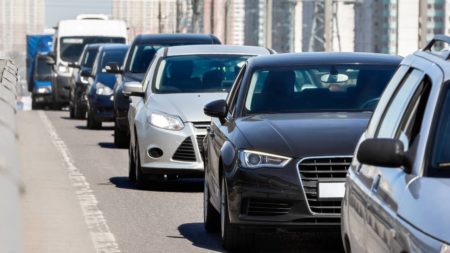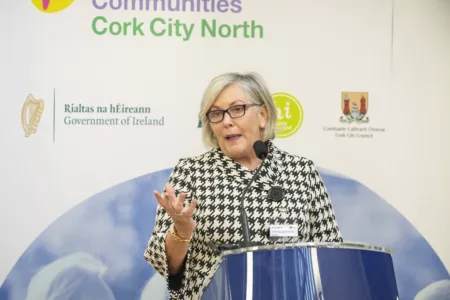18 September 2023
By Tom Collins
tom@TheCork.ie
As part of the Cork City Climate Action Plan 2024–2029, Cork City Council engaged the well known survey company ‘Behavious and Attitudes’ to perform research
Nearly two thirds of people living in Cork City strongly agree that Cork must transform into a more sustainable place to live and work, according to a new survey of residents on behalf of Cork City Council’s Climate Action Unit.
The research, completed by Behaviour and Attitudes, was undertaken to inform the draft Cork City Climate Action Plan which will go out to public consultation in the coming weeks. It will also support Cork’s designation by the European Commission as one of 100 European cities, leading the transition to become a climate neutral city.
The representative sample, which was gathered during 500 face-to-face interviews in people’s homes in April and May 2023, found that Cork people have a good understanding of the most effective actions they can take to reduce their carbon emissions. Nearly one third of homeowners are planning a home retrofit or energy-system upgrade in the next 12 months.
The survey asked people about the paths to a cleaner, healthier city that can help to address the climate changes we’re already witnessing. Of those polled, 80% believed that we are already seeing climate change in the city.
60% of Cork people fully recognize that traffic congestion will decrease if there is continued investment in a more regular and reliable bus service. 63% fully acknowledge that investment in cycling and walking infrastructure will enable healthier and more active lifestyles. Switching the country’s energy system to renewables, such as solar and wind, was also recognized as key to increasing employment and economic opportunity.
The survey found that recent government investment in public transport, facilities for walking and cycling and reductions in public transport fares are all recognised by the public as positive measures to change our transport habits. Over 60% of weekly public transport users declared that services have improved in the past 12 months. The cost of fares, frequency of service, reliability and speed of travel were all roundly acknowledged as better. Using public transport, walking or cycling more, rather than hopping in the car, are among the effective ways we can reduce greenhouse gas emissions and help to reduce the risks caused by climate change.
The survey reveals that:
- 64% of Cork people strongly agree that ‘Cork must transform into a more sustainable place to live and work that is climate neutral and resilient’.
- 86% of Cork people want more pedestrianized streets.
- 92% want more parks, biodiversity and green spaces in the city.
- 88% want more locally produced foods.
- 89% want more trees on city streets.
Lord Mayor, Cllr Kieran Mc Carthy said: “I am heartened by how many people in Cork City are taking the climate crisis seriously. As a Council, we are keen to support the public, our businesses, and the community to that action. I note that an important outcome from the survey was the need to speak in plain language, when talking about climate issues. We need scientists to inform us, but their information must be delivered in language that we can all understand.”
Cork City Council Chief Executive Ann Doherty said: “Under the National Planning Framework, Cork is primed to be the fastest growing city in the country over the next 20 years. Climate action must be at the heart of this growth. The City Development Plan, our blueprint for the next 5 years, commits us to growing as a sustainable, compact liveable city. By creating a city where people have economic opportunities, live near the health and education services they require, have access to green space and amenities, to regular and reliable public transport and good walking and cycling facilities, we can live healthier lives and generate less emissions.”
Notes
Key transport findings include:
- While just under 70% of residents travel by car weekly and 38% use public transport weekly, the numbers of people travelling by bike is rising with 12% of residents cycling weekly.
- The research found a clear variation in travel mode depending on age with 16–34-year-olds being much more likely to be public transport users, weekly pedestrians and car passengers.
- Approximately 55% of 16–24-year-olds in Cork use public transport weekly with 96% travelling by foot weekly.
- Amongst commuters, the research reveals that 70% of people typically travel to work or study by car, while 38% use the bus and 15% cycle.
- Up to 38% of residents are weekly users of public transport. A further 40% use public transport less often. The key barriers to more frequent usage are perceived poor reliability, poor frequency, and lack of service.
- There is strong awareness of reduced public transport fares with 62% of all residents knowing about the price cuts, a figure that rises to 73% amongst weekly public transport. Up to 57% of weekly users indicate they are using public transport more due to the fare reduction.
- Up to 26% of people who live in Cork cycle. Fears around safety, lack of segregated cycle lanes and steep, hilly terrain are the main reasons that people don’t cycle more frequently. Half of cyclists say that the fear of travelling alongside vehicles means they cycle less often in the Cork City area.
- It also found that 25% of Cork motorists who drive diesel or petrol cars are likely to purchase a hybrid or electric vehicle within the next three years. Expense, range concerns and lack of charging infrastructure at home and elsewhere remain some of the main barriers to a more widespread shift. 52% say they are too expensive, 23% are anxious about driving range, while 35% have concerns either about charging at home or the wider EV infrastructure capacity.
Key findings on energy usage are:
- The survey demonstrates a widespread lack of awareness amongst residents of the energy ratings of their homes. Just under 40% know their home’s BER ratings – with awareness greatest amongst those living in their homes for less than five years.
- However, nearly 1 in 3 homeowners are considering undertaking a home retrofit or energy upgrade within the next 12 months. Previous upgrades focused on insulation but 14% are considering installing solar panels and 9% insulation.
Key findings on climate change are:
- Understanding of climate change terms is modest with issues like ‘carbon footprint’ and ‘biodiversity’ best understood. However, far less than 50% of residents had a clear understanding of 6 of the 10 terms that they were questioned about.
- Industry and transport are considered the main contributors to climate change, yet buildings and transport are in fact the main contributors.
This latest survey follows the publication of UCC research last week which found that home energy usage and road transport emissions are responsible for two-thirds of greenhouse gases being generated in Cork City. A second and separate piece of research completed by KPMG Future Analytics, also for Cork City Council’s Climate Action Unit, confirms people’s concerns that unless serious action is taken to reduce emissions, Cork City is facing more frequent and severe flooding, droughts, and heatwaves.


